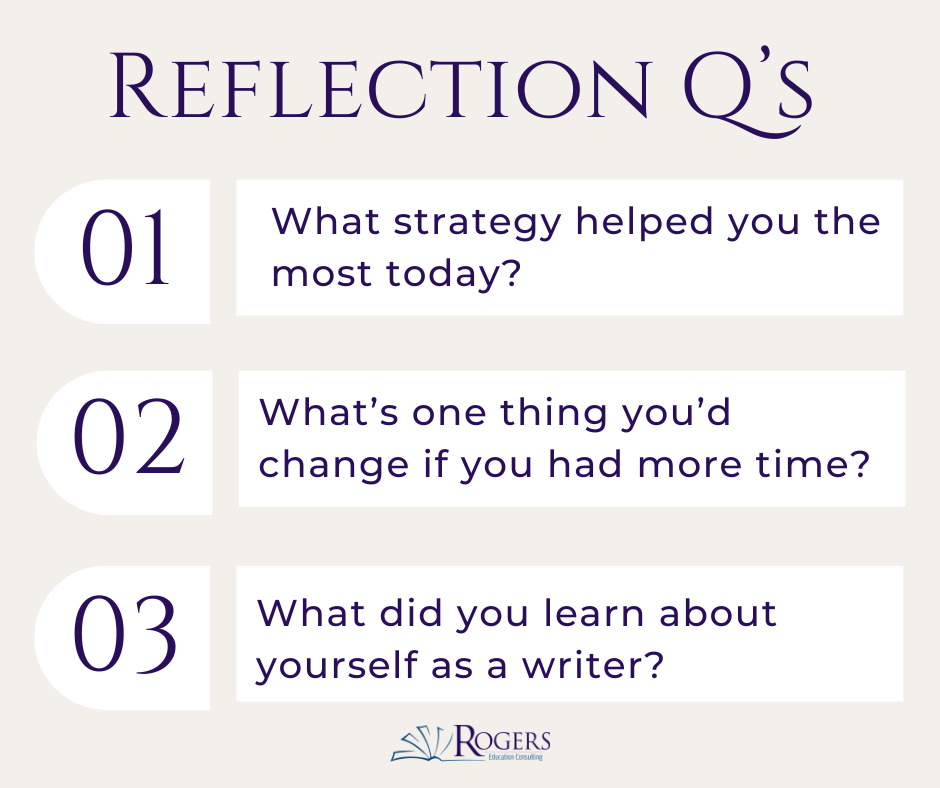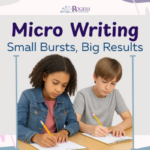If there’s one thing I’ve learned from coaching teachers across the country, it’s this: sometimes the smallest shifts spark the biggest growth.
In his article, Changing How Writing Is Taught, Steve Graham offers a powerful overview of why writing instruction often falls short. He highlights a key problem: while many teachers know what good writing instruction looks like, time constraints and systemic challenges often get in the way. One area consistently underutilized? Student reflection.
Too often, writing instruction ends with the final sentence. But in reality, the end of the draft is the beginning of the learning.
Why Routine Reflection Matters
Reflection isn’t fluff. It’s a metacognitive powerhouse. When students are given space to consider the strategies they used, what worked, and what they might try differently next time, they begin to internalize the writing process.
Here’s what routine reflection can do:
- Reinforce writing as a process, not a one-and-done product
- Encourage a growth mindset and ownership
- Build self-awareness around strategy use
- Lay the groundwork for self-regulated learning
We talk about helping students become better writers, but we also want to help them become thinking writers. Reflection is the bridge.
How to Start Tomorrow
Let’s keep it simple. Here are three ways to work routine reflection into your writing block without adding stress to your day.
1. Add a Quick Reflection Prompt
After writing time, invite students to respond to a short, targeted question:

What strategy helped you the most today?
What’s one thing you’d change if you had more time?
What did you learn about yourself as a writer?
2. Keep It Low-Stakes
This isn’t a graded assignment. It’s a conversation—either written or verbal. Students can jot down thoughts in a notebook, share with a partner, or do a quick sticky note exit ticket.
3. Model Real Reflection
Use think-alouds to show what authentic reflection sounds like:
“I realized my ending felt rushed today. Next time, I want to plan that part before I start drafting.”
Reflection is a skill, and like any skill, it gets better with practice.
Let’s Rethink the Finish Line
So many of us are working to build stronger writers. But the magic isn’t just in the mini-lessons and mentor texts. It’s in those final few minutes when students pause, look back, and start to think like writers.
Let’s teach them to do that—on purpose, every time.


